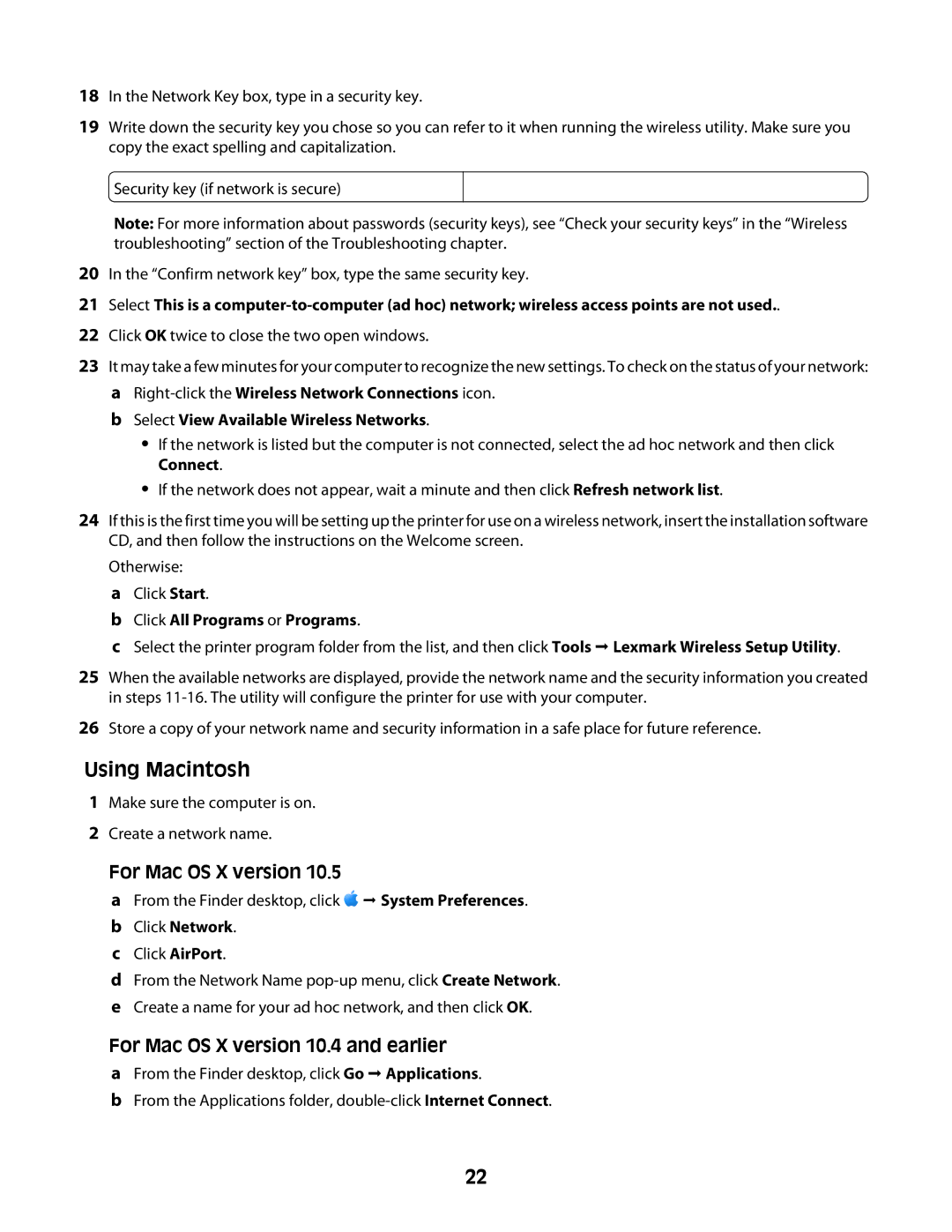18In the Network Key box, type in a security key.
19Write down the security key you chose so you can refer to it when running the wireless utility. Make sure you copy the exact spelling and capitalization.
Security key (if network is secure)
Note: For more information about passwords (security keys), see “Check your security keys” in the “Wireless troubleshooting” section of the Troubleshooting chapter.
20In the “Confirm network key” box, type the same security key.
21Select This is a
22Click OK twice to close the two open windows.
23It may take a few minutes for your computer to recognize the new settings. To check on the status of your network: a
b Select View Available Wireless Networks.
•If the network is listed but the computer is not connected, select the ad hoc network and then click Connect.
•If the network does not appear, wait a minute and then click Refresh network list.
24If this is the first time you will be setting up the printer for use on a wireless network, insert the installation software CD, and then follow the instructions on the Welcome screen.
Otherwise:
aClick Start.
bClick All Programs or Programs.
cSelect the printer program folder from the list, and then click Tools Lexmark Wireless Setup Utility.
25When the available networks are displayed, provide the network name and the security information you created in steps
26Store a copy of your network name and security information in a safe place for future reference.
Using Macintosh
1Make sure the computer is on.
2Create a network name.
For Mac OS X version 10.5
a From the Finder desktop, click ![]() System Preferences. b Click Network.
System Preferences. b Click Network.
c Click AirPort.
d From the Network Name
For Mac OS X version 10.4 and earlier
a From the Finder desktop, click Go Applications.
b From the Applications folder,
